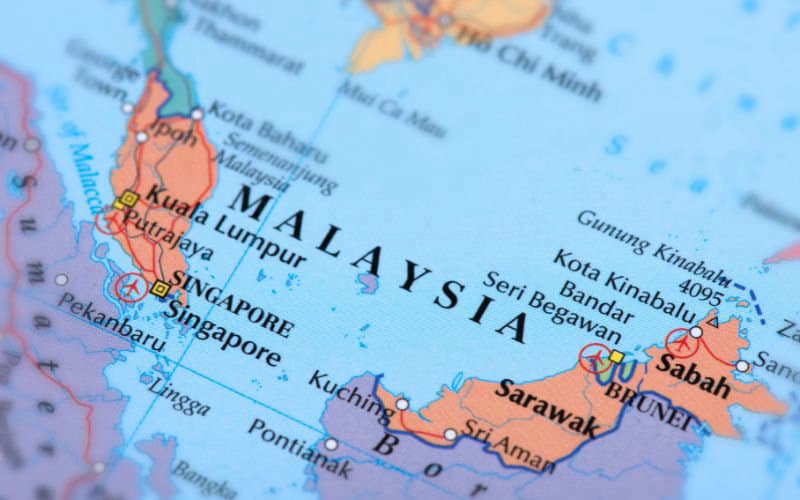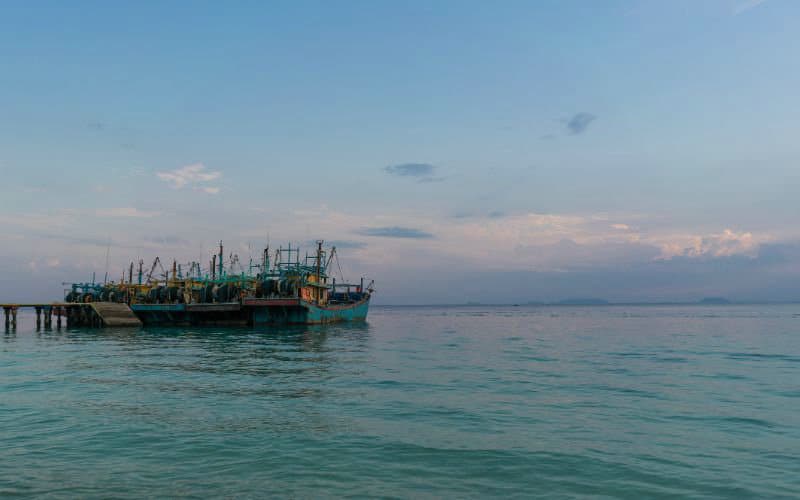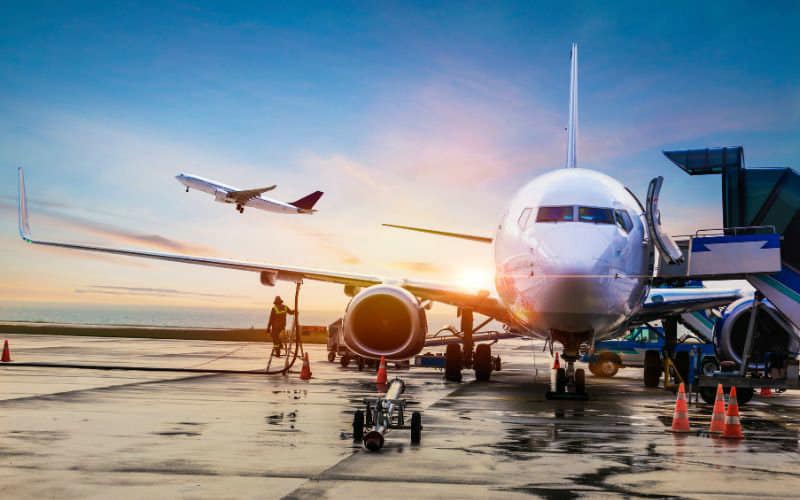Understanding Shipping Options
When planning to ship goods from China to Malaysia, your decision on the mode of transportation has significant implications for transit time, cost, and the handling of your cargo.

Sea Freight Shipping vs. Air Freight Shipping
Sea Freight:
- Full Container Load (FCL): You pay for a full container, offering a flat rate regardless of its contents’ weight or volume.
- Less Than Container Load (LCL): Suitable for smaller shipments, you share container space with other shippers, and costs are based on your cargo’s volume.
Air Freight:
- Speed: Ideal if you need your goods quickly; it’s significantly faster than sea freight.
- Cost: Generally more expensive, charged by weight and volume.
Choosing the Right Shipping Method
To choose the best shipping method:
- Volume and Weight: Consider FCL for large, heavy shipments, and LCL or air freight for smaller loads.
- Urgency: If time is critical, air shipping is your best option despite the higher costs.
Cargo Transportation Alternatives
Beyond the conventional sea and air shipping, other options may include multimodal transport, which combines sea and air freight from China to Malaysia to balance speed and cost. Consider this if you find neither sea nor air shipping aligns perfectly with your needs.
Pre-Shipment Procedures
Before you ship your goods from China to Malaysia, ensure you’ve prepared properly: high-quality packing to protect your items during transit, and securing all necessary export documents and inspections to meet both countries’ regulations.
Packaging and Loading
Packaging: It’s crucial to ensure your goods are packed securely to prevent damage. You should use durable materials and consider the needs of your product—fragile items need more protection. For example:
- Small Items: Bubble wrap + double corrugated boxes
- Large Items: Pallets + shrink wrap + straps
Loading: A systematic loading process ensures that your goods are stacked in a way that maximizes space and minimizes movement that could lead to damage. Containers from China are usually filled efficiently, often using a method known as block stacking or brick stacking, depending on the goods’ nature.
Export Documentation and Inspection
Documentation: The correct documents are vital for a smooth export process from China. At a minimum, you’ll need:
- Commercial Invoice: Lists your shipment’s value and other important details.
- Packing List: Detailed account of each item in the shipment.
- Certificate of Origin: Verifies your goods’ production location—critical for tariff calculations. Confirms country of origin of goods. Form E allows preferential tariffs under the ASEAN-China FTA. NPCO does not offer tariff benefits.
These documents should be accurate and match the details of your shipment precisely.
Inspection: China’s exports often require inspection to ensure they meet the destination country’s standards. Expect your shipment to be inspected for safety, quality, and adherence to Malaysian import regulations. Inspections can be conducted by various bodies, such as the AQSIQ (General Administration of Quality Supervision, Inspection and Quarantine) in China, ensuring your products comply with the required standards before departure.
- Export License/Permit: Required for restricted/controlled goods like chemicals, animals, weapons, etc. Obtained from relevant government agencies in China.
- Commercial Invoice: Detailed description of the goods, quantities, values, buyer/seller details, etc.
- Packing List: Specifies contents of the shipment, packaging details, weights, etc.
- Bill of Lading/Air Waybill: Issued by shipping carrier, details cargo manifest, parties involved, etc.
- Other Permits, Licenses, Certificates: As required for specific regulated goods.
The Main Ports in China and Malaysia

When you import goods from China to Malaysia, it is good to know the importance of ports in both two countries. This can help you decide how the shipping routes.
In China, the port of Shanghai stands out as a central hub for international trade. As one of the busiest ports in the world, Shanghai Port serves as a vital gateway for your shipments from China to Malaysia. Meanwhile, other significant Chinese ports include Shenzhen—home to Yantian port, Guangzhou with its Nansha port, and Ningbo-Zhoushan—which is also a bustling port complex.
The Main Airports in China
| Airport | IATA Code | Introduction |
|---|---|---|
| Beijing Capital International | PEK | The second busiest airport in China, the main international airport serving Beijing |
| Shanghai Pudong International | PVG | The busiest airport in China, the main international gateway, global aviation hub |
| Guangzhou Baiyun International | CAN | The busiest airport in South China, serves Guangzhou and the surrounding areas |
| Chengdu Shuangliu International | CTU | The largest airport in Southwest China serves Chengdu and surrounding regions |
| Shenzhen Bao’an International | SZX | International airport serving Shenzhen city and Pearl River Delta region |
| Kunming Changshui International | KMG | Major aviation hub in Southwest China serving Kunming and Yunnan province |
| Xi’an Xianyang International | XIY | The main airport serving Xi’an and surrounding Shaanxi province |
The Main Seaports in China
| Port | Introduction |
|---|---|
| Shanghai | The largest port in China and the busiest container port in the world, located at the Yangtze River Delta |
| Ningbo-Zhoushan | World’s largest port by cargo tonnage, located in Zhejiang province |
| Shenzhen | One of the world’s fastest growing ports, located in Guangdong province |
| Guangzhou | The largest comprehensive port in South China, located in the Pearl River Delta region |
| Qingdao | Major port in Shandong province ranked among the world’s top 10 ports |
| Tianjin | The largest port in North China, the principal maritime gateway to Beijing |
| Xiamen | Major deep water port located in Fujian province, serving Southeast China |
| Dalian | The major port city in Liaoning province, the northernmost ice-free port in China |
For your imports to Malaysia, Port Klang is the primary port that supports the importation needs of Kuala Lumpur, the Malaysian capital. Besides, you may also consider the following Malaysian ports:
- Penang Port: Located in the north, it facilitates trade on the Strait of Malacca.
- Port of Tanjung Pelepas (PTP): Known for its rapid growth and modern facilities.
- Johor Port: Situated in the southern part of the country, it’s beneficial if your goods are headed closer to Singapore.
The Main Airports in Malaysia
| Airport | Location | IATA Code | Airlines |
|---|---|---|---|
| Kuala Lumpur International Airport | Sepang, Selangor | KUL | Malaysia Airlines, AirAsia, Malindo Air |
| Kota Kinabalu International Airport | Kota Kinabalu, Sabah | BKI | Malaysia Airlines, AirAsia |
| Penang International Airport | Bayan Lepas, Penang | PEN | Malaysia Airlines, AirAsia, Firefly |
| Kuching International Airport | Kuching, Sarawak | KCH | Malaysia Airlines, AirAsia |
| Langkawi International Airport | Langkawi, Kedah | LGK | Malaysia Airlines, AirAsia |
The Main Seaports in Malaysia
| Port | Location | TEU (2021) |
|---|---|---|
| Port Klang | Selangor | 13 million |
| Port of Tanjung Pelepas | Johor | 9 million |
| Penang Port | Penang | 1 million |
| Bintulu Port | Sarawak | 0.3 million |
Your choice of port in China and Malaysia will be influenced by the proximity to your supplier or manufacturer in China and the final destination of your goods in Malaysia, as well as the shipping routes available.
Shipping Routes and Shipping Time from China to Malaysia
When you’re looking at shipping options from China to Malaysia, you’ll find there are different transit times depending on whether you choose sea or air freight.
Sea Freight: The journey by sea generally takes around 8 to 16 days from port to port. This is your best bet if you’re not in a rush and looking for a cost-effective solution.
- West Malaysia: Delivery by courier service to this region typically takes about 15 business days.
- East Malaysia: For the eastern part of the country, expect around 15 to 20 business days for your shipment to arrive.
Remember to account for additional time for customs clearance and inland transportation from the port or airport to the final destination, as these factors can extend the total delivery time.
| Origin Port | Destination Port | Transit Time |
|---|---|---|
| Shanghai | Port Klang | 10-15 days |
| Shenzhen | Port of Penang | 7-12 days |
| Ningbo | Port Klang | 12-18 days |
| Hong Kong | Port Klang | 7-10 days |
| Guangzhou | Port Klang | 8-14 days |
| Tianjin | Port of Penang | 10-16 days |
| Dalian | Port Klang | 14-20 days |
| Shekou | Port Klang | 8-12 days |
Sea Shipping and Air Shipping Costs from China to Malaysia

Shipping from China to Malaysia involves a variety of costs, such as shipping rates and customs fees. In this section, you’ll learn how to calculate these expenses and understand the taxes and duties you may incur.
Calculating Shipping Costs
To determine your shipping cost, you need to consider both the weight and volume of your shipment, as well as the shipping method you choose. Rates can be broken down as follows:
- Air freight: Typically ranges from $1.5 to $3 per kilogram. Larger shipments often cost less per kilo.
- Express shipping: Costs around $6 to $10 per kilogram, variable by the weight of the product.
- Sea freight: Container shipping costs can be roughly $1,800 to $2,500 from port to port. An average container might cost about $2,200.
To get a precise quotation, you should contact a freight forwarder or use a shipping calculator, which takes into account details like origin, destination, the packaging, and the total weight of your shipment.
FCL rates from China to Malaysia
| Departure Port | Destination Port | Container 20’ (USD) | Container 40’ (USD) | Estimated Transit Time (days) |
|---|---|---|---|---|
| Shanghai | Port Kelang | 140 | 290 | 10 |
| Shanghai | Penang | 140 | 290 | 10 |
| Shanghai | Pasir Gudang | 140 | 290 | 12 |
| Shenzhen | Port Kelang | 100 | 140 | 6 |
| Shenzhen | Penang | 130 | 200 | 7 |
| Shenzhen | Pasir Gudang | 130 | 200 | 7 |
| Ningbo | Port Kelang | 145 | 300 | 10 |
| Ningbo | Penang | 145 | 300 | 10 |
| Ningbo | Pasir Gudang | 145 | 300 | 12 |
LCL Rates from China to Malaysia
| Departure Port | Destination Port | USD/CBM (1-3 CBM) | USD/CBM (3-9 CBM) | Estimated Transit Time (days) |
|---|---|---|---|---|
| Ningbo | Port Kelang | 9 | 9 | 10 |
| Ningbo | Penang | 9 | 9 | 10 |
| Ningbo | Pasir Gudang | 18 | 18 | 12 |
| Shanghai | Port Kelang | 9 | 9 | 10 |
| Shanghai | Penang | 9 | 9 | 10 |
| Shanghai | Pasir Gudang | 18 | 18 | 12 |
| Shenzhen | Port Klang | 9 | 9 | 5 |
| Shenzhen | Penang | 9 | 9 | 7 |
| Shenzhen | Pasir Gudang | 16 | 16 | 7 |
| Guangzhou | Port Klang | 120 | 15 | – |
Air freight rates from China to Malaysia (updated February 2023)
| Departure City | Destination Airport | Price Per KG ($USD) | Estimated Transit Time (days) |
|---|---|---|---|
| Shanghai | Kuala Lumpur (KUL) | 2 | 1 |
| Shanghai | Kuala Lumpur (KUL) | 2 | 1 |
| Shanghai | Kuala Lumpur (KUL) | 2 | 1 |
| Guangzhou | Kuala Lumpur (KUL) | 3 | 2-3 |
| Guangzhou | Kuala Lumpur (KUL) | 3 | 2-3 |
| Guangzhou | Kuala Lumpur (KUL) | 2.5 | 2-3 |
*Please note that the rates shown are only estimates to provide an indication of pricing. Actual quotes will vary depending on the specific details of the shipment, such as the goods, weight, dimensions, delivery timeline, and other requirements.
We work with each customer individually to develop customized shipping solutions tailored to your needs and budget. You can expect competitive pricing that aims to deliver great value.
Please contact us to discuss your shipping needs – Luckystar looks forward to putting together an unexpected price for you. We will offer you the cheapest way to ship your goods, we are your most trustworthy shipping company.
Understanding Taxes and Duties
When importing goods from China to Malaysia, you’ll encounter various taxes and duties that can affect the total cost of your shipment:
- Customs Duties: These are based on the Harmonized System codes of your goods and can vary widely.
- Sales and Service Tax (SST): Imposed on various services and sales within Malaysia, can impact the final selling price of imported goods.
- Customs Clearance Fees: Handling charges for the importation process and the completion of customs documentation.
It’s important to anticipate these costs as they can be significant. Competitive pricing can be found by comparing different carriers and taking into account all potential fees to ensure no surprise charges.
Customs Clearance and Compliance

When shipping from China to Malaysia, you must navigate through customs clearance with precision, ensuring compliance with all regulations. Pay close attention to the details to avoid delays and extra costs.
Navigating Customs Regulations
To successfully import goods into Malaysia, you should understand how customs clearance works. This process involves the HS code, a standardized classification system used worldwide to identify products. The HS code determines the duty rates and is critical for filling out customs documentation accurately. Make sure your shipping documents mention the correct HS code to facilitate customs procedures.
Malaysia customs require you to comply with specific Incoterms for international trade, which define the responsibilities of buyers and sellers. Be clear about the Incoterm you’re using as it dictates who handles certain aspects of the shipping process, including customs clearance.
Remember, if you’re importing sensitive cargo, you’ll need to adhere to additional regulations and possibly secure extra permits. It’s advisable to partner with a customs broker or a shipping company experienced in handling customs clearance in Malaysia to ensure things go smoothly.
Prohibited Goods and Restrictions
When shipping from China to Malaysia, it’s crucial to know that both countries have specific regulations governing what you can and cannot send. Your parcel needs to comply with these rules to ensure smooth delivery.
Prohibited Items:
These items are completely banned from import into Malaysia:
- Narcotics: Any and all forms of illegal drugs.
- Pornographic Material: Includes sex toys, sex dolls, magazines, and other explicit digital prints.
- Weapons: Firearms, explosives, and ammunition.
- Counterfeit Goods: Imitation brand-name items.
- Pirated Items: Unauthorized copies of intellectual property.
Restricted Items:
For restricted items, you might need special permits or have to fulfill certain conditions:
- Alcohol: Requires a permit for importation.
- Tobacco: Same as alcohol; limited quantities and a permit.
- Medications: A prescription or a license might be necessary.
- Food: Must meet Malaysia’s food safety standards.
Always double-check with Malaysian Customs and your courier service before sending your package. They’re your best source for up-to-date information and can guide you through the process. By adhering to these guidelines, you’ll help ensure that your items reach their destination without delay or legal issues.
Logistical Support and Services

In tackling the complexities of shipping from China to Malaysia, understanding the logistical support and services available is essential. With an array of options, you can rest assured that your transportation needs from warehousing to ensuring the safety of your cargo are catered to.
Warehousing and Distribution
Your goods often require storage before and after transit, which is why China warehousing is a vital part of the logistics chain. Logistics companies offer you secure warehousing facilities that cater to a variety of storage needs, including those for sensitive goods. Here’s a breakdown of what you can expect:
- Storage: Short-term and long-term options.
- Inventory Management: Accurate tracking for your peace of mind.
- Distribution: Efficient door-to-door distribution and delivery services.
These warehousing services ensure that from the moment your goods arrive from China until they reach their destination in Malaysia, they are handled efficiently.
Insurance and Cargo Safety
When shipping your goods, cargo insurance becomes a non-negotiable aspect to consider. The types of insurance coverage available to you include:
| Coverage Type | Benefits |
|---|---|
| All-Risk | Comprehensive protection against loss or damage. |
| Named Perils | Coverage for specific, named risks in transit. |
| Total Loss | Protects against situations where the entire shipment is lost. |
In addition to insurance, logistics providers also offer services designed to ensure cargo safety during transportation. This includes secure packing, careful handling of sensitive goods, and tracking systems that allow you to keep an eye on your shipments throughout their journey. With these measures, you can be confident that your commodities are well-protected until they reach the safety of their destination.
Delivery and After-Sales Support
When shipping from China to Malaysia, timely delivery and reliable after-sales support can significantly enhance your satisfaction with the shipping process. Here’s what you need to know about tracking your shipment and the kind of customer service you can expect during and after delivery.
Tracking and Delivery Time Estimates
Tracking Your Shipment: As soon as your goods are dispatched, you’ll receive a tracking number. This number allows you to monitor the progress of your shipment in real-time. You can typically track your cargo via the shipping company’s website or mobile app, providing you with up-to-date information on the whereabouts of your shipment.
Remember that these are estimates and actual times may vary based on various factors such as customs clearance, weather conditions, and operational aspects.
Customer Service and Support
Communicating with Customer Service: If you encounter any issues or have questions during the shipping process, the customer service teams are there to help. You can contact them via:
- Phone
- Live chat (if available)
After-Sales Support: After your shipment is delivered, after-sales support becomes crucial, particularly if there are issues to address, such as:
- Claims for lost or damaged items
- Assistance with customs clearance
- Returns or exchanges based on the seller’s policy
Good after-sales support can include helping you with the necessary documentation, providing timely updates on your queries, and ensuring a resolution that’s satisfactory.
Why Choose Us? Luckystar Logistic
Established in 2022, Luckystar is an esteemed member of the Federal Maritime Commission (FMC) and operates as a Non-Vessel Operating Common Carrier (NVOCC). Our mission is to deliver superior service quality at reduced costs, primarily serving China, the USA, Canada, and Europe. With core team members boasting over 20 years of experience in logistics, Luckystar brings considerable expertise to the table. Since its inception, the company has been dedicated to offering global door to door shipping, sea shipping service, air freight service and logistics solutions, emphasizing dependability, adaptability, and responsiveness.
We’re not just a company; we are experts in transportation! Offering industry-leading solutions, we take pride in providing premium shipping services at a fraction of the cost of other freight forwarders, both in China and across the globe. Here’s why partnering with us is the smart move:
Accuracy You Can Count On:
Say goodbye to delivery delays and hello to timely delivery, which is vital for businesses needing to deliver goods swiftly to their customers.
Your Passport to Global Reach:
Our wide network of delivery destinations virtually covers the entire globe, offering extraordinary opportunities for businesses aiming to expand their reach. You can be assured that your package will find its way to almost any corner of the world, taking your business global!
Track with Ease:
Say goodbye to guesswork. Our stringent procedures afford you a live tracking mechanism, making it easy for you to follow your shipment’s progress at every stage of its journey. Stay informed and enjoy peace of mind, knowing exactly where your shipment is anytime you need to know.
Personalized Service, Every Step of the Way:
One of our dedicated team members will personally oversee your shipment from start to finish. This, coupled with our commitment to transparency and constant communication, ensures you are kept updated on the progress of your cargo every step of the way.
When shipping hazardous materials, it’s crucial to work with experienced service providers to ensure that your shipment is handled safely and efficiently. By partnering with us, you can have peace of mind knowing that your shipment is in good hands.
Are you looking for an experienced freight forwarder to assist you in importing from China and ship to Malaysia? Contact us. We’re always ready to help. Offering the unbeatable cheapest shipping rates for international shipping, our services are more affordable than you’d believe. Shipping may complicated, but get in touch with us today; we are the best freight forwarding you can find, and get your best freight service from China to Malaysia.
